 |
Thursday, 24 April 2014
Most people have unwanted, worrying thoughts
Mood:
 chatty
Topic: Anxiety chatty
Topic: Anxiety
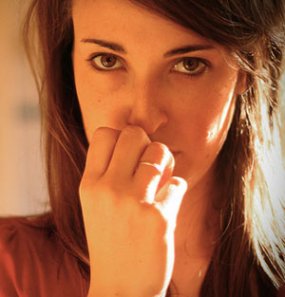
Researchers sought to gauge how often people had 'intrusive thoughts,' like an image of their house on fire or jumping off a ledge. Anxiety-producing intrusive thoughts — considered to be a common symptom of obsessive compulsive disorder, or OCD — may actually be widespread in the general population.
A new study found that more than 94 percent of people have unwanted, intrusive thoughts and impulses.
The study involved 19 researchers from 13 countries who surveyed 777 people. The participants were asked detailed questions to gauge whether they experienced intrusive thoughts, such as a feeling of contamination, an image of their house on fire or a sudden urge to hurt someone.
Such thoughts are considered different from worries and ruminations about past events. The researchers said they found that 94.3 percent of people reported at least one type of unwanted, intrusive thought during the last three months.
The results show that intrusive thoughts aren't unique to patients with OCD, said Adam Radomsky, lead author of the study and a psychology professor at Concordia University in Canada. Rather, what separates people with OCD from those withouth the condition is their reaction to having such thoughts, he said. Read More - mnn.com
Posted by Neil Bartlett DHyp M.A.E.P.H
at 00:01 MEST
Updated: Thursday, 24 April 2014 01:14 MEST
Friday, 6 December 2013
The Anxiety Epidemic: Causes, Symptoms, Solutions
Mood:
 bright
Topic: Anxiety bright
Topic: Anxiety

By Christina Sarich Are you anxious reading this? Millions of people throughout the world suffer from some form of anxiety or another. In the US alone, more than 40 million people experience either a social anxiety disorder, obsessive compulsive disorder, post-traumatic stress, some type of phobia which causes them anxiety, or a generalized anxiety disorder. These various types of anxiety cost more than $42 billion annually in medical costs. A slew of medications are prescribed to help individuals cope with various forms of anxiety, and people with anxiety are more than 5 times likely to visit their primary health care physician than those who do not, according to the Journal of Clinical Psychiatry. What Causes Anxiety? Anxiety is a natural response to stress. In fact, if our nervous system’s did not alert us to potentially dangerous situations, by quickening our heart rates, dumping hormones like adrenaline into our blood system, and increasing our respiratory rates, we wouldn’t be able to respond to a true threat. The problem is that many people are responding to stress, either perceived or real, with their nervous systems in ‘high alert.’ So whether they are coping with an impending exam at school, the death of a loved one, a divorce, or work pressures, their bodies are constantly in an anxious state trying to deal with external stresses. Physical Symptoms of Anxiety The physical symptoms of anxiety can include: - Sweating
- A pounding heart
- Trouble breathing
- Fainting
- Headaches
- Trembling
- Being easily startled
- Suffering from unwanted, obsessive thoughts, and even unwanted behaviors. Types of Anxiety Anxiety can take on many forms. Here are some of the more common types of anxiety: - Obsessive Compulsive Disorder
- Social Anxiety Disorder
- Phobias (from spiders to small spaces)
- Post Traumatic Stress Disorder (this affects veterans of war, but also those who suffer any form of trauma)
- Generalized Anxiety Disorder (this is the name a psychiatrist or psychologist will give to someone who feels anxiety for no specific reason)
- Panic Disorder While these anxiety types have been created partly to enhance the sales of drugs, there is no doubt that people experience these stressful mental issues. Medications Prescribed for Different Types of Anxiety There are numerous pharmaceutical drugs that are prescribed for anxiety, including Benzodiazepines, which is the most common class of anti-anxiety drugs. These drugs should be avoided if at all possible. They include: - Xanax
- Valium
- Klonopin
- Ativan Many of these drugs cause some debilitating side effects which can mean trading one set of unwanted symptoms for another. They include: - Drowsiness, lack of energy
- Apathy
- Forgetfulness
- Depression
- Nausea
- Blurred or Double Vision
- Memory Loss
- Lowered Cognitive Function
- Slurred Speech
- Disorientation
- Slow Reflexes
- Hallucinations
- Mania
- Aggressive or Impulsive Behavior Aside from drugs there are numerous other methods of successfully treating anxiety, including deep breathing techniques, yoga, tai chi, meditation, and even spending time in nature. Ayurveda in particular has been shown to outperform a popular anxiety drug, Clonazepam. Source - http://wakingtimes.com
Posted by Neil Bartlett DHyp M.A.E.P.H
at 00:01 CET
Updated: Friday, 6 December 2013 01:02 CET
Thursday, 21 November 2013
Rumination: The danger of dwelling
Mood:
 d'oh
Topic: Anxiety d'oh
Topic: Anxiety
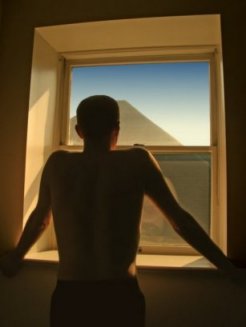
The UK's biggest ever online test into stress, undertaken by the BBC's Lab UK and the University of Liverpool, has revealed that rumination is the biggest predictor of the most common mental health problems in the country. A bit of self-reflection can be a good thing, say psychologists. But just how serious can it get when introspection goes awry and thoughts get stuck on repeat, playing over and over in the mind? Rumination and self-blame have long been accepted by health professionals as part of the problems that can lead to depression and anxiety - the two most common mental health problems in the UK, according to the Mental Health Foundation. But new research has demonstrated just how significant and serious their impact on mental health can be. The findings of a ground-breaking study, published in the journal PLOS ONE today, suggest that brooding too much on negative events is the biggest predictor of depression and anxiety and determines the level of stress people experience. The research even suggests a person's psychological response is a more important factor than what has actually happened to them. A total of 32,827 people from 172 countries took part in the online stress test devised by the BBC's Lab UK and psychologists at the University of Liverpool, making it the biggest study of its kind ever undertaken in the UK. "We found that people who didn't ruminate or blame themselves for their difficulties had much lower levels of depression and anxiety, even if they'd experienced many negative events in their lives," says Peter Kinderman, who led the study and is a professor of clinical psychology at the University of Liverpool. "Dwelling on negative thoughts and self blame have previously been recognised as important when it comes to mental health, but not to the extent this study has shown. "The findings suggest both are crucial psychological pathways to depression and anxiety." The human mind is an extremely complex machine and it's generally accepted there is no single cause for depression and anxiety by professionals in the field. But some factors have more impact than others. The study found traumatic life events, such as abuse or childhood bullying, were the biggest cause of anxiety and depression when dwelled upon. This is followed by family history, income and education. Next comes relationship status and social inclusion. "But these didn't merely 'cause' depression and anxiety," he says. "The most important way in which these things led to depression and anxiety was by leading a person to ruminate and blame themselves for the problem. Read More - BBC
Posted by Neil Bartlett DHyp M.A.E.P.H
at 00:01 CET
Updated: Thursday, 21 November 2013 01:48 CET
Friday, 15 November 2013
How modern life is making us ANGRY
Mood:
 d'oh
Topic: Anxiety d'oh
Topic: Anxiety
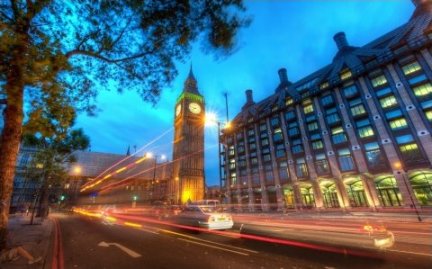
Modern day life is satisfying our basic needs but in turn is making us angrier, claims a leading psychologist. Dr Sandi Mann from the University of Central Lancashire said that the aggression we once needed for survival, and which is 'hard-wired' into our brains, can 'misfire' when it doesn't have a purpose. This leads us to lash out and rage about relatively inconsequential and trivial events such as waiting to see a doctor, computers crashing and traffic. Dr Mann wrote in the July issue of Reader's Digest that anger which was once key to our everyday survival has become 'targeted at trivial annoyances.' She continued that our comfortable lifestyles may have spoiled us and boosted our expectations to the point where anything short of perfect causes us to act like 'petulant children.' According to reports in The Telegraph, the energy and drive that originally focused humans on basic survival, such as food and shelter, have become unfocused and secondary in the 21st century. This is because people are largely provided for, leaving the motivations that fuel basic survival without an appropriate outlet. Humans evolved to become angry in certain situations because the emotion motivates us to want things. For example, hunger makes us angry by raising our serotonin levels, prompting us to look for food. Anger also played an important role in helping early humans live together in social groups, by warning individuals when their behaviour was upsetting others. 'The red mist of rage helped our ancestors survive,' Dr Mann claimed. 'If they'd been too laid-back about others stealing their food or predators trying to kill them, they wouldn't have taken sufficient preventive action. 'But nowadays, Britons rarely experience real body-weakening poverty or genuine life-threatening injustice or mortal danger.' This could lead to violent overreactions, such as road rage incidents, or make us furious about trivial details such as whether a restaurant meal is warm enough or how much company bosses are paid. Read more: dailymail.co.uk
Posted by Neil Bartlett DHyp M.A.E.P.H
at 00:01 CET
Updated: Friday, 15 November 2013 01:21 CET
Friday, 27 September 2013
Anxious people need more personal space
Mood:
 chatty
Topic: Anxiety chatty
Topic: Anxiety

Anxious people need more personal space, new research has revealed. The space surrounding the body - known by scientists as ‘peripersonal space’ - has previously been thought of as having a gradual boundary, but has been given physical limits by new research into the relationship between anxiety and personal space. New findings, published in The Journal of Neuroscience, have allowed scientists to define the limit of the ‘peripersonal space’ surrounding the face as 20cms to 40cms away. As well as having numerical limits, the specific distance was found to vary between individuals. Those with anxiety traits were found to have larger peripersonal space. In an experiment, Dr Chiara Sambo and Dr Giandomenico Iannetti, from University College London, recorded the blink reflex - a defensive response to potentially dangerous stimuli at varying distances from subject’s face. They then compared the reflex data to the results of an anxiety test where subjects rated their levels of anxiety in various situations. Those who scored highly on the anxiety test tended to react more strongly to stimuli 20cm from their face than subjects who got low scores on the anxiety test. Researchers classified those who reacted more strongly to further away stimuli as having a large ‘defensive peripersonal space’ (DPPS). A larger DPPS means that those with high anxiety scores perceive threats as closer than non-anxious individuals when the stimulus is the same distance away. The research has led scientists to think that the brain controls the strength of defensive reflexes even though it cannot initiate them. Study lead author Dr Giandomenico lannetti said: ‘This finding is the first objective measure of the size of the area surrounding the face that each individual considers at high-risk, and thus wants to protect through the most effective defensive motor responses.’ Read more: dailymail.co.uk
Posted by Neil Bartlett DHyp M.A.E.P.H
at 00:01 MEST
Updated: Friday, 27 September 2013 01:25 MEST
Sunday, 15 September 2013
Seven top herbs for naturally taming anxiety
Mood:
 bright
Topic: Anxiety bright
Topic: Anxiety
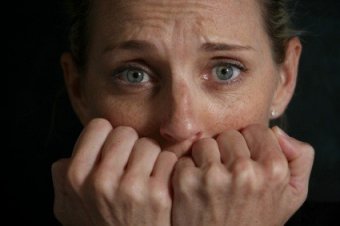
If you are one of the roughly 40 million Americans today who suffers from some form of anxiety, you likely already know how difficult it can be to manage troublesome symptoms like persistent uncertainty, worry, obsessive compulsiveness, and depression. But did you know there are a number of herbs that can help treat these conditions naturally, and restore health and balance to your mind? Here are seven of the top choices for your consideration: 1) Holy basil: A member of the mint family, holy basil, also known as "Tulsi," has been used for centuries throughout Asia and India to promote mental, physical, and even spiritual health. Since it functions as an adaptogen, holy basil assists the body in effectively responding to physical and emotional stress. Many people who regularly take the herb report feelings of calm and relaxation. Various studies have found that holy basil possesses unique compounds that help reduce stress hormone levels, which can in turn help improve mental clarity, boost memory, and prevent the onset of age-related mental disorders. Holy basil is also a powerful antioxidant with antibacterial, anti-fungal, and anti-inflammatory properties. (http://medicinehunter.com/holy-basil) 2) Lavender: A powerful essential oil, lavender has long been used in aromatherapy to calm the nerves and promote restful sleep. Since getting restful sleep is important for dealing with stress and anxiety disorders, lavender oil is often used to treat anxiety, as it slows the activity of the nervous system, promotes relaxation, and improves mood and concentration. (http://www.umm.edu/altmed/articles/lavender-000260.htm) Drinking lavender tea can also help reduce stress and stabilize mood. Many people who suffer from depression symptoms gain considerable relief from drinking lavender tea. The medicinal beverage can also be used to improve digestion and ease gastrointestinal upset. (http://www.healthguidance.org) 3) Chamomile: A popular bedtime tea, brewed chamomile is a favorite when it comes to easing stress and promoting rest. In fact, chamomile extract was shown by researchers from the University of Pennsylvania back in 2009 to effectively alleviate anxiety symptoms in a "clinically meaningful and statistically significant" way. (http://www.naturalnews.com/034454_chamomile_anxiety_depression.html) Depression sufferers may also benefit from taking chamomile as the condition is typically marked by anxiety and insomnia, both of which are targeted by the herb. Chamomile is an effective remedy for treating irritable bowel syndrome (IBS), stomach cramps, and other digestive problems that can trigger anxiety as well. Beyond this, chamomile can help reduce inflammation, calm nerves, and promote restful sleep. (http://www.naturalnews.com/034454_chamomile_anxiety_depression.html) 4) Skullcap: Another herb from the mint family, skullcap combines well with valerian root to synergistically reduce stress, decrease nervous tension, fight insomnia, and fight anxiety symptoms. When made into a tea or tincture, skullcap can be taken throughout the day to combat stress and promote restfulness, even in the midst of irritating or stressful situations. Skullcap is also a powerful anti-inflammatory herb with unique antiviral and anti-fungal properties. Individuals with various mood and behavioral disorders can also benefit from taking skullcap. (http://www.herbreference.com/skullcap.html) 5) Kava: Commonly used in traditional Pacific Island culture as a ceremonial beverage, kava root has an amazing ability to promote relaxation and focus. Drinking a cold concoction made from the plant's root pulp can help significantly improve mood, boost feelings of contentment, and mitigate the symptoms associated with anxiety and nervous disorders. (http://www.umm.edu/altmed/articles/kava-kava-000259.htm) Kava is so effective at treating anxiety symptoms that many cities now have kava bars, where health-conscious patrons can grab a quick kava to help relax and take the edge off. Since kava tends to provide similar effects as alcohol without causing impairment, the herb is a popular alternative to beer and wine among those wanting to have fun without getting "buzzed" or drunk. 6) Ashwagandha: Said to work better than pharmaceutical drugs at relieving anxiety and depression symptoms, the adaptogenic herb ashwagandha is a great natural option for overcoming stress and unease. According to the Life Extension Foundation (LEF), ashwagandha provides protection for the nervous system, which tends to go into overdrive in response to chronic anxiety. Ashwaganda is also loaded with powerful antioxidants that mitigate the free radical damage often caused by stress. Studies have shown that taking ashwagandha can normalize the free radical damage caused by stress, and thus prevent premature aging and other chronic illnesses. (http://www.lef.org/magazine/mag2006/jun2006_report_ashwa_01.htm) 7) 5-HTP: Many people do not produce enough of the brain neurotransmitter serotonin, which can cause depression, eating disorders, and various other symptoms of anxiety. But taking 5-hydroxytryptophan (5-HTP), the precursor to serotonin, can help replenish this deficit and effectively mitigate these symptoms. Said to work far better than pharmaceutical drugs for these purposes, 5-HTP also aids in the production of the sleep hormone melatonin, which makes it a great bedtime supplement for promoting relaxation and restful sleep. Studies have shown that 5-HTP can provide substantial relief for those suffering from insomnia, as well as help relieve chronic pain symptoms. Learn more: naturalnews.com
Posted by Neil Bartlett DHyp M.A.E.P.H
at 00:01 MEST
Updated: Sunday, 15 September 2013 02:11 MEST
Thursday, 1 November 2012
Chance of Early Death Increased Even by Mild Anxiety / Depression
Mood:
 blue
Topic: Anxiety blue
Topic: Anxiety
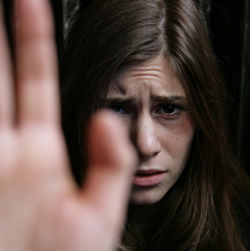
People with mild, subclinical levels of psychological distress are 29 percent more likely to have an early death due to health or injury-related reasons than are those without distress, according to new British research. Researchers studied mental health surveys given to 68,000 adult participants in addition to their mortality data. Of scrutinized individuals, those with psychological distress—even mild anxiety—had a greater risk of dying prematurely. Participants with highest levels of psychological distress were 41 percent more likely to die from cancer or related complications. Causes of early death were not limited to poor coping methods or hypertension and heart disease, as is conventionally believed, however. Early Death and the Biological Responses to Distress Individuals in high-stress environments often cope in unhealthy ways—with poor eating habits, alcoholism, drug abuse, sedentary lifestyles, and the like. Study author Dr. David Batty of the University College London, however, factored in these elements and found unchanged results. He claims that the increased mortality in his study “is not simply due to people with higher levels of psychological distress having poor health behaviors.” Full Story from naturalsociety.com
Posted by Neil Bartlett DHyp M.A.E.P.H
at 01:01 MEST
Updated: Thursday, 1 November 2012 02:48 MEST
Friday, 17 February 2012
Looking in the mirror makes you more anxious about your looks
Mood:
 d'oh
Topic: Anxiety d'oh
Topic: Anxiety
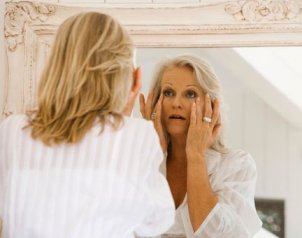
Some of us do it out of sheer vanity, others because we hate the way we look and want to try and change it. But whatever the reason, it seems staring at yourself in the mirror does more psychological harm than good. New research shows volunteers who gazed at their reflections for up to ten minutes at a time gradually became more and more anxious and depressed about their looks - even if they were perfectly happy with them to start with. Full Story from dailymail.co.uk
Posted by Neil Bartlett DHyp M.A.E.P.H
at 01:01 CET
Updated: Friday, 17 February 2012 01:04 CET
Friday, 10 February 2012
How Big a Problem is Anxiety?
Mood:
 cheeky
Topic: Anxiety cheeky
Topic: Anxiety
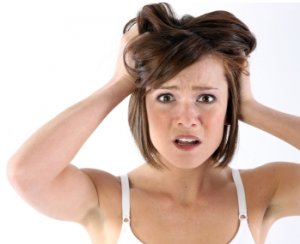
The chances are fairly high that either you or a loved one has had a history of anxiety. In any given year about 17% of us will have an anxiety disorder---and over our lives, about 28 % of us will have an anxiety disorder. And, if you have one anxiety disorder, then you probably have two or three anxiety disorders---and, possibly, depression. The most common anxiety disorders are panic disorder, social anxiety disorder, generalized anxiety disorder, post-traumatic stress disorder, obsessive compulsive disorder and specific phobia. 49% of the general population has a history of anxiety, depression, substance abuse or some of all three major problems. Full Article from psychologytoday.com
Posted by Neil Bartlett DHyp M.A.E.P.H
at 01:01 CET
Updated: Friday, 10 February 2012 01:33 CET
Newer | Latest | Older
|
| « |
July 2025 |
» |
 |
| S |
M |
T |
W |
T |
F |
S |
|
|
1 |
2 |
3 |
4 |
5 |
| 6 |
7 |
8 |
9 |
10 |
11 |
12 |
| 13 |
14 |
15 |
16 |
17 |
18 |
19 |
| 20 |
21 |
22 |
23 |
24 |
25 |
26 |
| 27 |
28 |
29 |
30 |
31 |
|










